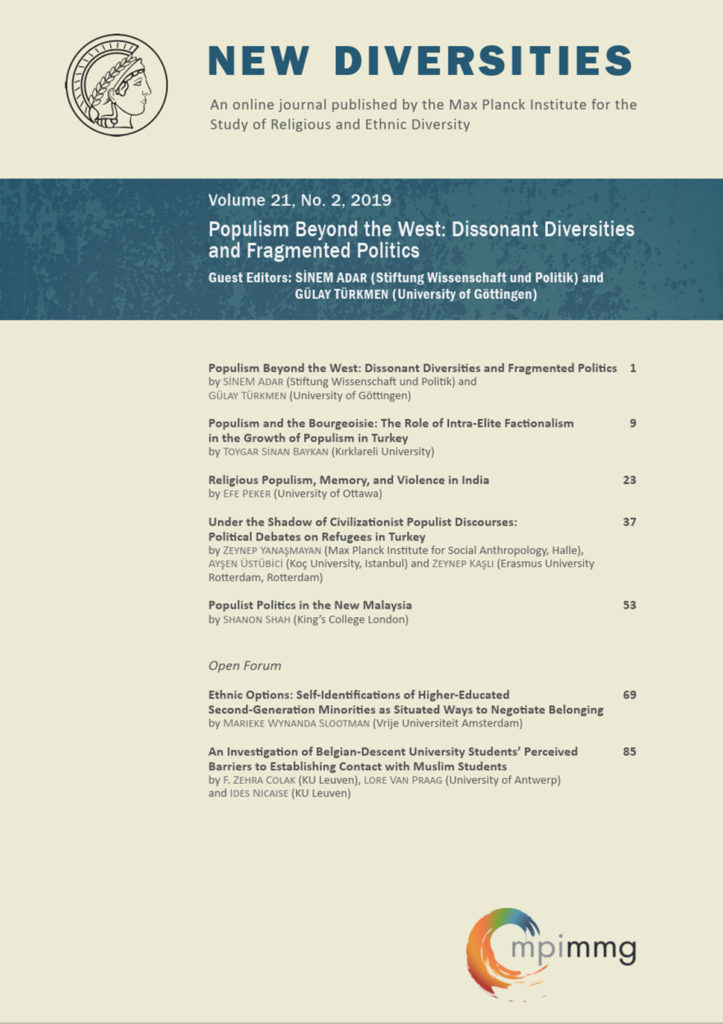Religious Populism, Memory, and Violence in India
by Efe Peker (University of Ottawa)
To cite this article: Peker, E. (2019). Religious Populism, Memory, and Violence in India. New Diversities, 21(2), 23–36. https://doi.org/10.58002/hd87-9q77
While the literature on right-wing populisms has focused on the phenomenon as an ideology, political style, and economic policy, populist interaction with religions, especially in non-Western cases, remains underexamined. Contributing to the study of religious populism, this article discusses the case of hindutva (Hindu nationalism) in India, concentrating on Narendra Modi’s Bharatiya Janata Party (BJP), in power since 2014. From a social movements perspective, the analysis amalgamates three interrelated components: framing practices, mobilizing structures, and political opportunities. Regarding framing, the article deals with how the BJP redefines national identity and historical memory in exclusive association with Hinduism—at the expense of religious minorities. Concerning mobilizing structures, the BJP’s grassroots network Sangh Parivar is examined as an extensive set of organizations promoting Hindu pre-eminence, as well as the personalized communication tools centred around Modi himself, fostering a quasi-sacralised image of the leader. Finally, post-1980 sectarian violence is recounted as a key political opportunity that facilitated the BJP’s consolidation of power. Illustrating the aggressive articulation of Hinduism by the BJP via these three mechanisms, and incorporating an array of data such as the declarations of key figures in the movement, movement websites, newspaper articles, reports, as well as other historiographies and analyses, the article makes two theoretical propositions. First, it contends that a social movements outlook allows for a broader analysis of populism, one that takes into account grassroots forces and historical progression, which goes beyond understanding it merely as a rhetorical people-elite distinction. Second, it argues that religion warrants more attention in the literature as a cultural component of contemporary populisms. Shifting the focus to non-Western cases would help advance the study of the populism-religion nexus in its culturally and geographically variegated forms.
New Diversities • Volume 21, No. 2, 2019
Populism Beyond the West: Dissonant Diversities and Fragmented Politics
Guest Editors: Sinem Adar (Stiftung Wissenschaft und Politik) and
GülAy Türkmen (University of Göttingen)
- ISSN-Print 2199-8108
- ISSN-Internet 2199-8116
